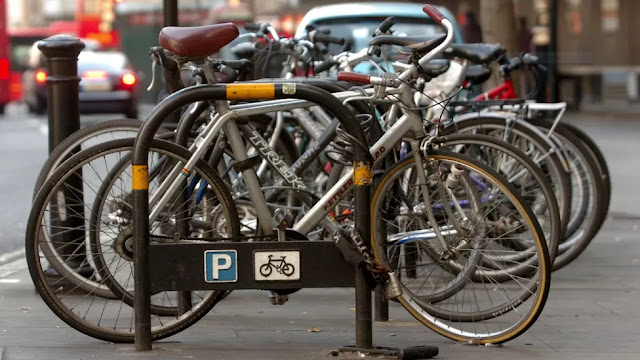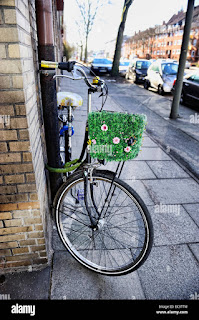During the early '80s, around the time I first moved back to New York, there was a bike shop that sold used bikes and parts, as well as some new accessories. There were rumors about, shall we say, the provenance of some of the shop's merchandise.
The shop changed locations--though it remained in the same neighborhood--before closing down some years back. I have to admit that I never patronized the shop myself because two people I knew at the time told me they spotted their bikes, which had recently been stolen, in the shop and an employee or the owner, I forgot whom, assaulted one of them when he pointed out his purloined bike.
While most shops are owned and operated by honest people, whether they are cycling enthusiasts or families, there have always been the "bad apples" who deal in bike booty. They flourish under, basically, the same conditions that support black and gray markets: demand, scarcity, high prices and people who are desperate or dishonest. The shop I mentioned just happened to be in a gentrifying neighborhood full of young people--the sort of neighborhood where thieves look for bikes--abutting an area known for drug dealing and other crime. It was on a border, if you will.
What got me to thinking about that shop, and that part of my life, was a news item about a bike theft ring that's been exposed via the Bike Index registry. In addition to keeping information about bikes, stolen or not, and about theft rings and markets for stolen bikes. It also synthesizes data that connects stolen bikes that fall into patterns.
One of those patterns linked a number of bikes stolen in Colorado with a shop in Ciudad Juarez, a Mexican city just across the Rio Grande from El Paso, Texas. I have never been to either city, but CJ has a reputation for poverty and lawlessness, much like the drug-ridden area I mentioned earlier. From what I've heard and read about it, some people, especially teenaged boys and young men, get involved the trade of stolen or counterfeit goods because they have few, if any, other options. And people routinely cross over from EP to take advantage of lower prices.
Now, to be fair, the Ciudad Juarez "discount," if you will, has mainly to do with the difference between the nations' currencies and the generally lower cost of living on the Mexican side. But some merchandise is cheaper than it is across the border because of, well, the way it came across the border.
And so it was with Alexander's Bikes. They posted bike after bike for sale on a local Facebook page that could be viewed only in Mexico or with a Mexican VPN. Bike Index used photos and other data from those listings along with reports on Colorado cycling Facebook groups and other BI data to link 10 bikes out of a batch of 43 it examined to their owners. All of those bikes were, not surprisingly, high-end machines.
In one way, you have to hand it to whoever "masterminded" the scheme: It's unlikely, to say the least, that someone looking to buy a bike in Ciudad Juarez would've been keeping tabs on bikes stolen in Colorado--or that someone whose bike was stolen in Colorado would stumble upon a geo-restricted Facebook page.
It seems that Alexander's is now closed for good, probably because of the Colorado Attorney General's investigation or simply the publicity the case garnered. Alexander Espinosa Perez, who ran the shop, has denied any involvement in bike trafficking and the sale of stolen goods. He's agreed to work with Mexican and US authorities, but he immediately deleted the shop's Facebook and TikTok pages and wiped its Instagram page clean of its content.
It's not clear as to whether he'll be allowed to sell bikes again. Now I'm wondering what became of the owner(s) and employees of the shop I mentioned at the beginning of this post.

















